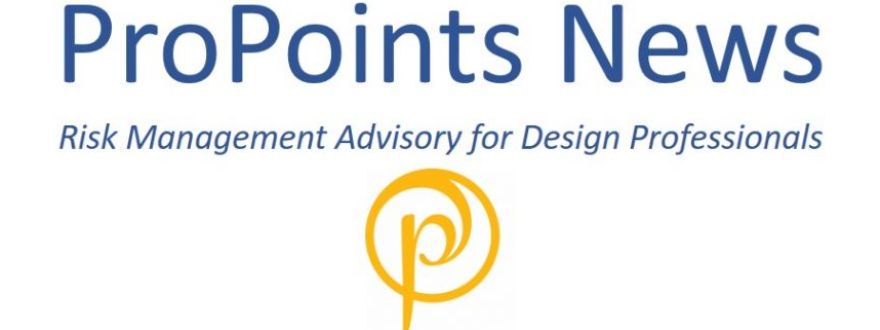
by Roseanne DeBellis - Great American Insurance Co.
You may be or have been approached by family member, friend, colleague or client prospect to perform a home inspection in conjunction with the purchase of a home. You are a licensed design professional and should have the qualifications to do so, right? Yes. But should you? Maybe. Only if you protect yourself. And, like other projects, you should be aware of the risks.
CLAIM STUDY
A structural engineer was asked by a family friend to provide a home inspection for a first time home buyer as a 'favor' (i.e. no charge). The engineer provided a home inspection for a single-family home in Arizona. Since this was a family friend, no written contract was prepared. The buyer was not present when the home was inspected. The attic was full of boxes and the engineer was unable to fully view the floors and the walls. Several attempts were made to have the buyer remove the boxes from the attic, but these requests were ignored. The engineer issued his report based on his visual views only.
Six months later, the engineer was served with a lawsuit related to his inspection (Note: No Good Deed Goes Unpunished). The lawsuit alleged that the inspection provided by the engineer was negligent in that he failed to discover certain defects, including cracking in the walls. The lawsuit continued for 12 months which included exchange of written discovery, appearance for depositions and finally a Court-ordered mediation. The matter resolved for a nominal sum, however, defense fees were incurred and, rather than focusing on his business, the engineer was otherwise preoccupied with a lawsuit.
MANAGE YOUR RISK
First and foremost, by doing home inspections, you are taking on services that might not particularly be within your day-to-day expertise. Brace yourself knowing that the fee for this type of service is nominal. However, that does not mean that it cannot potentially develop into an expensive and consuming claim or lawsuit. Particularly in today's economy and the current real estate landscape, even the most minor alleged error can be costly.
Next, ensure that you have a written contract and that the contract includes language that specifically delineates your scope of services. Nothing more, nothing less. The scope must state what services you are being hired to perform. It should also include a description of what your services do not include. Oftentimes, buyers have an unreasonable expectation of what a home inspection entails.
Next, including a limitation of liability provision in your contract is strongly recommended. Such language should limit your liability to the amount of the fee for the services provided or another fair amount reasonably related to the scope of services (i.e. $25,000 to $50,000). However, it is important to know that, in order for such limitation of liability clauses to be enforceable1, both parties must be aware of the provision and documentation exists showing that both parties negotiated clause.
OTHER HELPFUL TIPS
Ensure that a someone from the "Buyer's Team" is present with you during the inspection. Make sure you have full access to all areas of the home, including attic, basement, and garage. Meet and review your findings with your client: remember, communication is key! Finally, it is always recommended to document your findings and areas of concern and follow up with your client if necessary.
© 2022 Great American Insurance Company, 301 E. Fourth Street, Cincinnati, OH 45202.
4518-PLD (9/22)
1Enforceability of limitation of liability clauses vary depending on State jurisdiction






